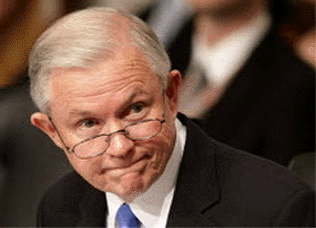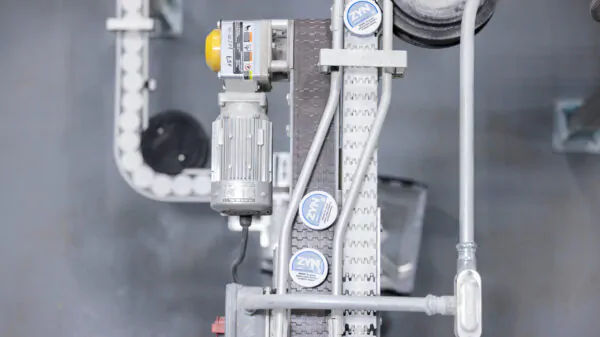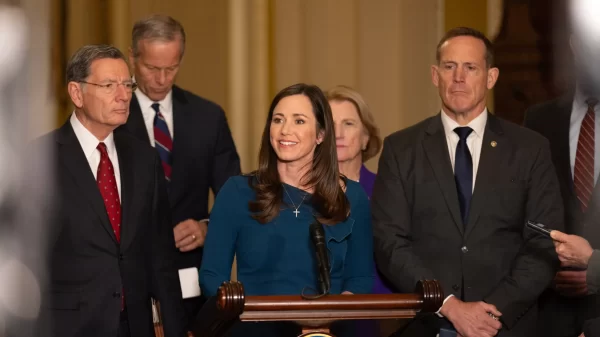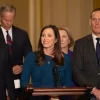By Brandon Moseley
Alabama Political Reporter
Congressman Bradley Byrne (R from Mobile) said that President Barack Hussein Obama’s deal with China on energy production had no input from Congress and would harm the economy. Alabama Senator Jeff Sessions (R) agrees. Sessions said that President Obama has a habit of circumventing Congress to advance his agenda and warned that the deal allowing China to increase CO2 emissions to 2030 would put America at a disadvantage.
Representative Bradley Byrne said on Facebook, “I’m all for responsible energy production, but this “deal” the President struck with China is the wrong approach. The agreement was done without any input from Congress and will result in a drain on the US economy.”
U.S. Senator Jeff Sessions said that the agreement that President Obama and Chinese President Xi Jinping reached on carbon emissions limitations will hurt the American worker:
“The President has made a habit of circumventing Congress to unilaterally fulfill his agenda. Despite holding commanding Democrat majorities in the House and Senate in 2009 and 2010, the President’s cap-and-trade agenda was rejected. Under this new agreement, China, our largest trading competitor, is allowed to emit carbon dioxide unabated until 2030. This will cement a huge economic advantage for them while saddling American businesses and employees with new, high-cost regulations. This action places the President’s ideology over the needs of struggling American workers. These are policies that will cost jobs, lower wages, and needlessly spike utility rates, while hurting vital industries that are often pillars of the local economy.”
According to information supplied by Sen. Sessions’ office, the agreement signed on November 11, 2014, by President Obama and Chinese President Xi Jinping requires the U.S. to emit between 26 and 28 percent less carbon in 2025 than was emitted in 2005 while China must produce 20 percent of its total energy from carbon-free sources by 2030 and not increase net carbon emissions after that year. Following the announcement, EPA Administrator Gina McCarthy stated that this goal will be met using executive orders by the President usurping the powers of the Congress to have any input on the policy or the agreement. The Obama Administration is already developing its own Executive branch directives to industry without a vote of Congress to reduce greenhouse gas emissions to 30 percent below 2005 levels by 2030.
The U.S. Chamber of Commerce was also highly critical of this deal. They released a statement by writer Sean Hackbarth: “Ignore the cheers from the White House, the State Department, Mother Jones, and elsewhere over the U.S.-China green house gas agreement. It’s simply another attack on abundant American energy and the economy.”
The President of the U.S. Chamber’s Institute for 21st Century Energy Karen Harbert said in a statement: “If actually implemented, this agreement would give an unfair advantage to Chinese manufacturers while forcing dramatic changes to America’s energy supply that will raise prices, threaten reliability, and increase the burden on hard working American families.
Secretary of State John Kerry wrote in the New York Times: “For the first time China is announcing a peak year for its carbon emissions – around 2030 – along with a commitment to try to reach the peak earlier.” In exchange, the “United States intends to reduce net green house gas emissions by 26 to 28 percent below 2005 levels by 2025.”
According to information supplied by the U.S. Chamber of Commerce, in 2005, the U.S. emitted the equivalent of 7.26 gigatonnes of carbon dioxide. So cutting emissions by 28 percent by 2025 implies emissions of 5.23 gigatonnes in 2025, which is about the amount that the U.S. emitted in 1992. If China actually follows the agreement and Chinese emissions do peak in 2030, the country could by then be emitting three times more than the U.S. and thus likely be the dominant manufacturer in the world. Also Chinese peak emissions are set at “around” 2030? Does that mean 2030 or 2031? Or 2035? There is also no set peak. At what level does the Chinese economy peak, “around 2030 and will whoever is in charge in China bother to honor a deal that has no teeth to it.
While America will spend 16++ years shuttering power plants, making cars more expensive to operate, and American homes much more costly to heat and cool the Chinese will be seizing markets and an even larger share of manufacturing dollars because they won’t be saddled with the Draconian new regulations that the American economy will be tied to. The Chamber argues that Chinese emissions would have leveled off in the 2030s anyway when their population stops growing.
Senator Jeff Sessions is a senior member of the Senate Environment and Public Works Committee. Sessions is also the Ranking member of the Budget Committee and a senior member of the Judiciary Committee.
Congressman Bradley Byrne represents Alabama’s First Congressional District. Both men were recently re-elected by Alabama voters to another term.























































